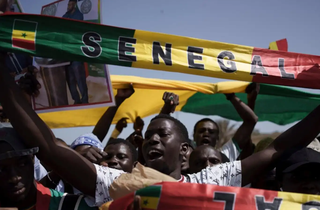This high-stakes poll comes amidst a backdrop of violent anti-government protests and anxieties about the nation's democratic future.
President Macky Sall, who has served two terms, is stepping down after a period marked by both economic progress and rising discontent. Nineteen candidates are vying to replace him, including disqualified opposition leader Ousmane Sonko, a charismatic figure who has thrown his support behind former tax inspector Bassirou Diomaye Faye. The sheer number of contenders makes a clear frontrunner unlikely, raising the possibility of a tense runoff election.
The lead-up to the vote has been far from smooth. Violent protests erupted last year after Sonko's disqualification, fueled by accusations of politically motivated prosecution and concerns about Sall attempting to cling to power. Sall's unsuccessful bid to delay the election further inflamed tensions, stoking fears of authoritarian overreach in a nation known for its relative stability within the often coup-prone region of West Africa.
Voters head to the polls grappling with a sense of economic stagnation. Despite Senegal's burgeoning oil and gas reserves, many citizens haven't witnessed a significant improvement in their daily lives. This economic frustration has become a rallying cry for the opposition, who promise to address the issue of inequality and channel the nation's newfound resources towards improving living standards.
The outcome of this election will be closely watched by the international community. Senegal has long been considered a democratic beacon in West Africa, and a peaceful, transparent vote is crucial for maintaining that reputation. Investors, drawn to the country's investor-friendly policies under Sall, will also be keenly observing the results, with a potential shift in leadership raising questions about the future of those policies. (ILKHA)



 Güncel
Güncel
 Güncel
Güncel
 Güncel
Güncel
 Güncel
Güncel
 Güncel
Güncel
 Dünya
Dünya
 Dünya
Dünya
 Güncel
Güncel
 Ekonomi
Ekonomi
 Güncel
Güncel





